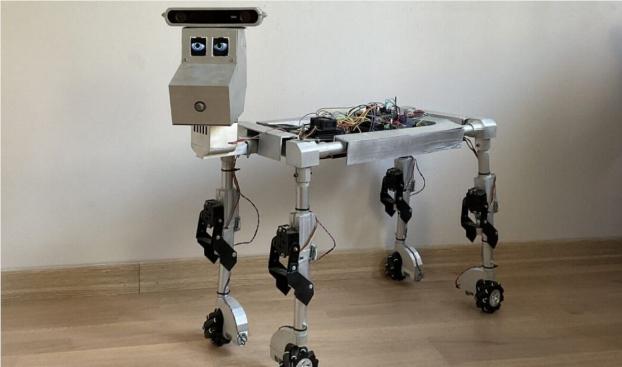FromTürkiyeSelin Alara Ornek, a high school student at the University of California, Los Angeles, developed an innovative AI-powered machine using Nvidia technology.Guide Dogs, offering a high-tech alternative to traditional guide dogs.
Ornek, a high school student in Istanbul, founded the IC4U project, which combines advanced robotics and AI to create a high-tech assistive tool for the visually impaired. She has already made three versions of the robot guide dog, with the latest version having a more real dog-like design and natural features.

Earlier robot guide dogs used ultrasonic sensors to detect obstacles, but Ornek switched to AI cameras, which allow it to better process sound and visual information. A self-taught robotics developer, Ornek used Nvidia's Jetson developer kit as a sandbox for testing improved processing capabilities.
The four-legged robot now uses AI cameras and sound sensors, powered by an Nvidia Jetson Nano chip, enabling it to accurately detect and identify objects, such as the color of a traffic light. The robot guide dog is also able to help visually impaired people shop, providing detailed information about items, including cost, and comparing them with the online retailer's other inventory.
Ornek is a member of AI4ALL, a non-profit organization dedicated to making AI and robotics development more inclusive. She has been recognized at events such as the European Youth Awards and the Global Women in Tech Awards, and won first place in the 2021 Bosphorus Robotics Cup.
Ornek began thinking about developing a robotic guide dog after her dog, Korsan, passed away. While traveling in France, she observed how guide dogs assisted their owners, and she wanted to provide the visually impaired with a companion that was not limited by age or health. "I started thinking that if a visually impaired person lost their dog, they not only lost their best friend, but also their eyes," she said.
In addition to guide dogs, Ornek has built several other robots, including BB4All, which is designed to prevent bullying by providing real-time notifications and health monitoring capabilities.
Ornek plans to continue developing robotic guide dogs, hoping to deploy them in smart cities in the future. She will begin studying computer science at the University of British Columbia in the fall as a scholarship recipient of the Karen McKellin International Leaders of Tomorrow Award.